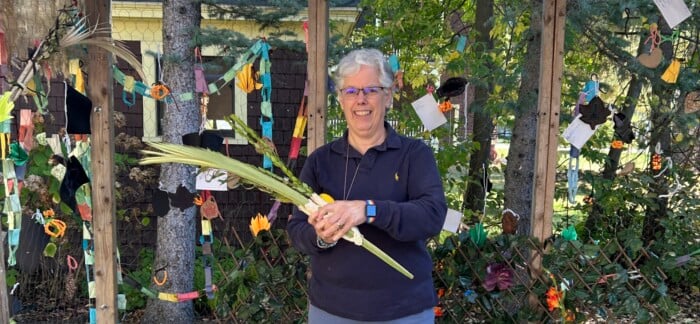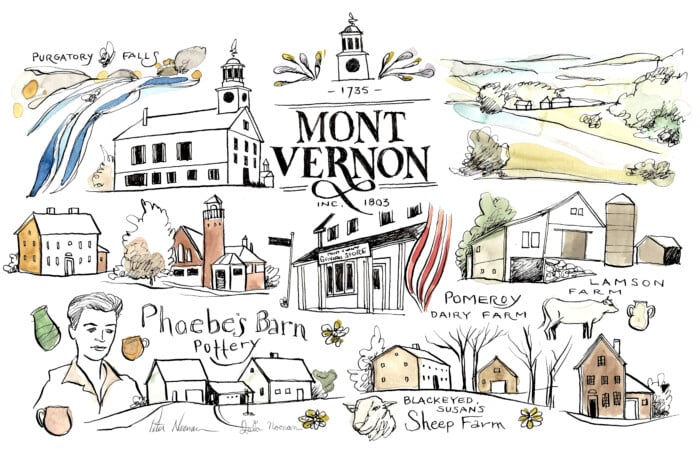Essay: NH’s ‘Divisive Concepts’ law threatens historical truth in the classroom
Whose responsibility is it to tell history? I believe the answer is simple: everyone.
When sitting down to write this piece, I found myself struggling to decide what story or whose story to share with you. Who gets to tell the stories? I believe everyone should have the chance to share history. I’ve found that history as it is taught is often more biased than some would think.
Often history books are filled with stories written in single narratives that lose so many valuable moments that represent the true complexities and realities of everyday life. Challenge yourself to really think about what you learned as a child and what truths you’ve discovered as you grow.
Now as we turn on a TV, scroll on TikTok or read the newspaper we are hearing more and more stories about books being banned that change what we teach our children. Some of these books that have come under fire include historically important figures like Rosa Parks and LGBTQIA+ history lessons. (“LGBTQIA+ is an abbreviation for lesbian, gay, bisexual, transgender, queer or questioning, intersex, asexual and more,” according to gaycenter.org.)
Books that focus on how immigrants are treated, Black studies or books that deny the existence of slavery in America are also included in this group. There have also been instances where educators have been punished for trying to teach this history to their students. Some argue that these teachings push a more divisive narrative, but I would say that they are finally including fundamental parts of American history.
 Why now? It’s a question that I find myself asking all the time and hear people asking all the time. Some claim it is the “woke” generation that is trying to change history or divide us more than we already are divided. While I do not claim to be an expert in the field of being woke, I do believe that as a society there can be no harm if we all try to be active in important societal issues and be aware of how they will impact lives around us.
Why now? It’s a question that I find myself asking all the time and hear people asking all the time. Some claim it is the “woke” generation that is trying to change history or divide us more than we already are divided. While I do not claim to be an expert in the field of being woke, I do believe that as a society there can be no harm if we all try to be active in important societal issues and be aware of how they will impact lives around us.
Here in New Hampshire, attempts to ban books have been widely unsuccessful. But this activity has been witnessed throughout our cities and towns. In October 2023, the Dover School Board heard a request from one resident to remove “Boy Toy” by Barry Lygra. There was a strong community outpouring against the removal of this book. In the end, the school staff reviewed the book and recommended keeping the book in place, as “removing this book would prevent access to ideas, viewpoints and opinions for all students based on the opinions of some.”
In 2021-22 school year, six books were challenged in the Bedford School District, but none were removed from the classroom or school library shelves. In October 2022, the Rochester School District had four books challenged focused on the LGBTQIA+ community. The challenge was brought by then-City Councilor Jim Gray and voted down by all the other councilors. Again, as we’ve seen time and time again, the community came out in force against banning the books.
While Gray is no longer serving on Rochester City Council, he is the District 6 state senator who represents Granite Staters from Rochester to Alton. Overall, New Hampshire has not had one successful book ban in 2022, according to the PEN American Organization.
The state Legislature will most likely see bills this session that have to do with altering the history we teach our children to be less inclusive, less honest in its telling, and in some cases, just incorrect and nonfactual. Last year, I testified in Concord against the “divisive concepts” law that was passed in 2021. House Bill 544 prohibits the teaching of racism, sexism and any materials that claim “an individual, by virtue of his or her race or sex, is inherently racist, sexist or oppressive.”
It’s worth noting that this bill did not stand alone. It was passed inside of the state budget. Gov. Chris Sununu signed a state budget that banned teachers from “discussing race, gender and other identity characteristics in certain ways in class.”
I am sure I will find myself in Concord again during this legislative session, and I hope that I also find you there. As we begin 2024 in New Hampshire, we must find a deeper meaning of the state’s motto, “Live Free or Die.” Although, ask anyone and they’ll tell you that I like to remind people of the rest of the quote from General John Stark. During an anniversary dinner to commemorate the Battle of Bennington during the Revolutionary War, a letter that Stark wrote was read aloud, “Live free or die; death is not the worst of evils.”
What could be worth more than death? I would say living in a state where my story isn’t valued, and living in a place where my neighbors do not want to hear my history or learn the histories of my family and my ancestors. Or even worse, finding that it’s been entirely removed from the history books.
This article is featured in the spring 2024 issue of 603 Diversity.
603 Diversity’s mission is to educate readers of all backgrounds about the exciting accomplishments and cultural contributions of the state’s diverse communities, as well as the challenges faced and support needed by those communities to continue to grow and thrive in the Granite State.













